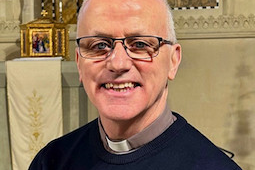Christian Aid: 'Bali agreement is deeply flawed'
Christian Aid has welcomed the last minute agreement at the Bali climate change conference that will enable negotiations to start on a new climate change agreement on a second phase of the Kyoto Protocol, which needs to be in place by 2012. But the agency said it is dismayed that crucial target figures for cutting carbon emissions in rich countries were removed from the final agreement. A reference to 25-40% cuts for industrialised countries by 2020 over 1990 levels was included in a draft agreement produced a week ago. The range reflected recommendations made in a report this year by the UN's Intergovernmental Panel on Climate Change, which said the cuts were essential to prevent global temperatures rising above two degrees. The cuts were also called for in a document agreed at an earlier meeting in Vienna of Kyoto Protocol signatories, including Britain. In Bali, however, the inclusion of a specific range of targets - even non binding ones - was strongly resisted by the governments of the United States, Russia, Japan and Canada. Instead, today's agreement merely makes a footnote reference to the IPCC report. Nelson Muffuh, a senior Christian Aid climate change policy analyst, said: "For most of the conference, the US delegation in particular proved a major obstacle to progress. They appeared to operate a wrecking policy, as though determined to derail the whole process. "We must praise the heroism of some of the developing countries who are far less wealthy and far less responsible for the problem than the US and yet came here with a desire to see a deal agreed. It was their bravery in standing up to the US that no doubt played a part in its u-turn. "But the way ahead will be hard. The Bush administration has said throughout that it wants to see developing countries agree to cuts in carbon emissions. A number of emerging economies put creative, flexible plans on the table, but will have little incentive to negotiate further until the industrialised world agrees deeper cuts. "Climate change is already having a devastating impact on the lives of some of the world's poorest communities through drought and flooding. The lack of clear targets in the roadmap leaves them exposed to further catastrophe." "Progress was made in Bali on the transfer of clean technology to poorer nations and the provision of additional money to help those most exposed to climate change adapt and defend themselves. A pledge was also made to protect forests in tropical countries. These developments, however, are eclipsed by the failure to introduce carbon cuts targets." "We were expecting a roadmap, and we've got one," said Mr Muffuh. "But it lacks signposts and there is no agreed destination."


















